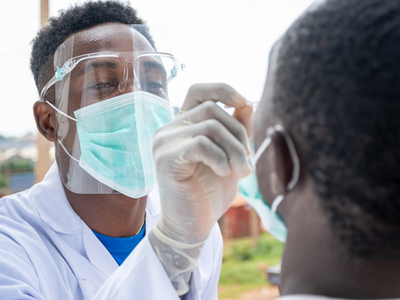The University of Oxford has announced it is to undertake a collaborative project to scale up the development of rapid testing technology for infectious diseases.
Oxford has signed an agreement with the diagnostic and genetic testing company Prenetics Limited, and the Oxford Suzhou Centre for Advanced Research (OSCAR), to continue work on OxLAMPTM rapid, molecular testing technology.
The news comes after the acquisition and commercialisation of Oxsed, a Oxford University ‘spin-out’, in late 2020 – with the intention of scaling OxLAMPTM technology for worldwide use.
The OxLAMP rapid COVID-19 test – known as OxLAMPTM RaViD Direct SARS-CoV-2 – aims to assist global communities with ‘rapid, portable, accurate results’ and can detect COVID-19 within 20 minutes, without the need for a traditional lab. It has already been used at airports, including Heathrow.
Professor Zhanfeng Cui, Donald Pollock Professor of Chemical Engineering at Oxford University and Founding Director at OSCAR, commented: “When we think about the future, especially with the pandemic, it’s very apparent that testing is here to stay with us for years to come.
“With this in mind, we are excited about the future roadmap in which we develop novel scientific discoveries to aid the world with fast and accurate molecular testing globally.
“Our goal is to decentralize laboratory testing with rapid, highly accurate, molecular testing, not just for COVID-19 but for all infectious diseases. I’m confident we can succeed in our mission with Prenetics.”
In what’s described by the University as a ‘multi-million-pound collaboration’, the three-year project will also see a new Prenetics Innovation Technology Centre (ITC) for Advanced Molecular Diagnostics established. This will be based overseas at the OSCAR in Jiangsu Province, China.
According to Oxford, the centre will include researchers in areas such as ‘bio-sensing, clinical virology, microbiology and medical devices’ with the aim ‘to enrich technology development for molecular diagnostics’. A parallel research programme has also been put in place in Oxford.



